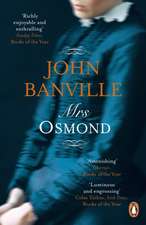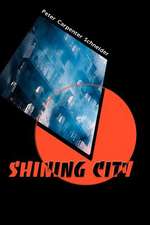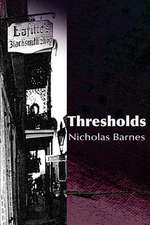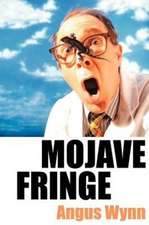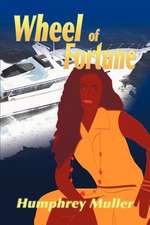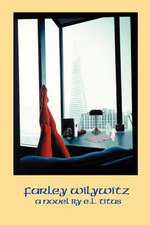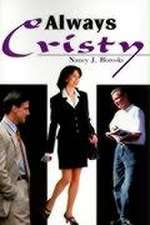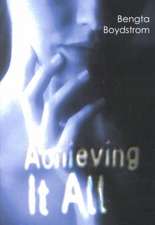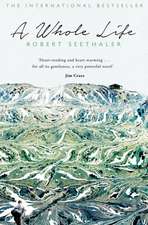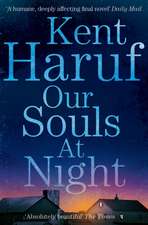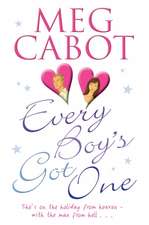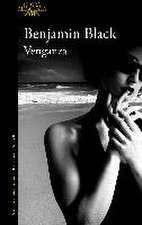Eclipse
Autor John Banvilleen Limba Engleză Paperback – 5 mar 2010
| Toate formatele și edițiile | Preț | Express |
|---|---|---|
| Paperback (2) | 42.39 lei 3-5 săpt. | +27.22 lei 6-12 zile |
| Pan Macmillan – 5 mar 2010 | 42.39 lei 3-5 săpt. | +27.22 lei 6-12 zile |
| Vintage Publishing – 31 ian 2002 | 97.34 lei 3-5 săpt. |
Preț: 42.39 lei
Preț vechi: 62.87 lei
-33% Nou
Puncte Express: 64
Preț estimativ în valută:
8.11€ • 8.47$ • 6.71£
8.11€ • 8.47$ • 6.71£
Carte disponibilă
Livrare economică 14-28 martie
Livrare express 27 februarie-05 martie pentru 37.21 lei
Preluare comenzi: 021 569.72.76
Specificații
ISBN-13: 9780330482226
ISBN-10: 033048222X
Pagini: 224
Dimensiuni: 131 x 200 x 17 mm
Greutate: 0.16 kg
Editura: Pan Macmillan
Locul publicării:United Kingdom
ISBN-10: 033048222X
Pagini: 224
Dimensiuni: 131 x 200 x 17 mm
Greutate: 0.16 kg
Editura: Pan Macmillan
Locul publicării:United Kingdom
Notă biografică
John Banville was born in Wexford, Ireland, in 1945. His first book, Long Lankin, was published in 1970. His other books include Nightspawn, Birchwood, Doctor Copernicus (which won the James Tait Black Memorial Prize in 1976), Kepler (which was awarded the Guardian Fiction Prize in 1981), The Newton Letter, Mefisto, The Book of Evidence, Ghosts, Athena, The Untouchable, Shroud and The Sea. He has received a literary award from the Lannan Foundation. He lives in Dublin.
Extras
At first it was a form. Or not even that. A weight, an extra weight; a ballast. I felt it that first day out in the fields. It was as if someone had fallen silently into step beside me, or inside me, rather, someone who was else, another, and yet familiar. I was accustomed to putting on personae but this, this was different. I stopped, struck, stricken by that infernal cold I have come to know so well, that paradisal cold. Then a slight thickening in the air, a momentary occlusion of the light, as if something had plummeted past the sun, a winged boy, perhaps, or falling angel. It was April: bird and bush, silver glint of coming rain, vast sky, the glacial clouds in monumental progress. See me there, the haunted one, in my fiftieth year, assailed suddenly, in the midst of the world. I was frightened, as well I might be. I imagined such sorrows; such exaltations.
I turned and looked back at the house and saw what I took to be my wife standing at the window of what was once my mother's room. The figure was motionless, gazing steadily in my direction but not directly at me. What did she see? What was it she was seeing? I felt diminished briefly, an incidental in that gaze, dealt, as it were, a glancing blow or blown a derisive kiss. Day reflecting on the glass made the image in the window shimmer and slip; was it she or just a shadow, woman-shaped? I set off over the uneven ground, retracing my steps, with this other, my invader, walking steadily inside me, like a knight in his armour. The going was treacherous. The grass clutched at my ankles and there were holes in the clay, under the grass, made by the hoofs of immemorial cattle when this edge of town was still open country, that would trip me up, perhaps break one of the myriad delicate bones it is said are in the foot. A gush of panic rose in me like gorge. How, I asked myself, how could I stay here? How could I have thought I could stay here, all alone? Well, too late now; I would have to go through with it. This is what I told myself, I murmured it aloud: I shall have to go through with it, now. Then I smelled the faint salt reek of the sea and shivered.
I enquired of Lydia what it was she had been looking at.
"What?" she said. "When?"
I gestured. "From the window, upstairs; you were looking out at me."
She gave me that dulled gaze she had lately developed, drawing her chin down and in, as if she were slowly swallowing something. She said she had not been upstairs. We stood in silence for a moment then.
"Aren't you cold?" I said. "I'm cold."
"You're always cold."
"I dreamed last night I was a child and here again."
"Of course; you never left here, that's the truth."
A fine feel for the pentameter, my Lydia has.
The house itself it was that drew me back, sent out its secret summoners to bid me come . . . home, I was going to say. On the road one winter twilight an animal appeared in front of the car, cowering and yet fearless-seeming, sharp teeth bared and eyes flashing in the glare of the headlamps. I had stopped on instinct before I registered the thing, and sat aghast now smelling mephitic fumes of tyre smoke and listening to my own blood hammering in my ears. The animal made a movement as if to flee, then stopped still again. Such fierceness in that stare, the electric eyes an unreal neon-red. What was it? Weasel? Ferret? Too big for these, yet not big enough for fox or dog. Just some wild unknown thing. Then at a low run, seemingly legless, silently, it was gone. My heart was pounding yet. The woods leaned inward on either side of me, blackly brown against the last faint radiance of the dying day. For miles I had been travelling in a kind of sleep and now I thought I was lost. I wanted to turn the car around and drive back the way I had come, but something would not let me go. Something. I switched off the headlights and struggled out and stood befuddled on the road, the damp half-darkness folding me about, making me its own. From this low hill the twilit land ahead fell away into shadow and mist. An unseen bird above me in the branches gave a cautious croak, a wafer of ice in the wet verge snapped glassily under my heel. When I sighed, an ectoplasmic flaw of breath stood in front of me briefly like a second face. I walked forward to the brow of the hill and saw the town then, its few little glimmering lights, and, beyond, the fainter glimmer of the sea, and I knew where unknowingly I had come to. I went back and got behind the wheel again and drove to the top of the hill and there I switched off the engine and the lights and let the car roll down the long incline in bumping silence, dreamily, and stopped in the square, before the house standing in its darkness, deserted, its windows all unlit. All, all unlit.
Now as we stood together at one of these same windows I tried to tell my wife about the dream. I had asked her to come down with me, to look over the old place, I had said, hearing the wheedling note in my voice, to see, I said, if she thought it could be made habitable again, if a man might inhabit it, alone. She had laughed. "Is this how you think you'll cure whatever it is that's supposed to be wrong with you," she said, "by running back here like this, like a child who has had a fright and wants its mama?" She said my mother would be laughing in her grave. I doubted it. Even in life she was never a great one for mirth, my mother. Laughing will end crying, that was one of her sayings. As I described my dream Lydia listened impatiently, watching the tumultuous April sky above the fields, huddled into herself against the dank air of the house, the wings of her nose whitening as she suppressed a yawn. In the dream it was an Easter morning, and I a child standing on the doorstep looking out at the recently rained on, sun-dazzled square. Birds flitted, whistling, a breeze swooped and the already blossoming cherry trees shivered in vernal anticipation. I could feel the cool of outdoors on my face, could smell from within the house the smells of the feast day morning: fusty bedclothes, tea smoke, the charry embers of last night's fire, and something redolent of my mother, some scent or soap, a woody tang. All this in the dream, and so clear. And there were Easter presents, as I stood in the doorway they were a palpable glow of happiness behind me in the depths of the house: eggs that my dream-mother had emptied and then filled somehow with chocolate--that was another smell, the fuggy smell of melted chocolate--and a yellow plastic chicken.
"A what?" Lydia said with a snort of almost-laughter. "A chicken?"
Yes, I said stoutly, a plastic chicken standing on spindly legs and when you pressed down on its back it laid a plastic egg. I could see it, in the dream, could see the moulded wattle and blunt beak and hear the click as the spring was released inside the bird and the yellow egg joggled down the channel and plopped on the table, wobbling. The wings flapped, too, with a clatter, when the egg was coming out. The egg was made of two hollow halves glued together slightly out of true, I could feel with my dreaming fingertips the twin sharp ridges at either side. Lydia was regarding me with an ironical smile, scornful, not unfond.
"And how does it get back in?" she asked.
"What?" Lately I had been finding it hard to understand the simplest things people said to me, as if what they were speaking in were a form of language I did not recognise; I would know the words but could not assemble them into sense.
"How do you get the egg back into the chicken," she said, "for it to come out again? In this dream."
"I don't know. It just . . . pushes back in, I suppose."
Now she did laugh, sharply.
"Well, what would Doctor Freud say."
I sighed angrily. "Not everything is . . ." Sigh. "Not everything . . ." I gave it up. Still she held me fixed in fond disparaging regard.
"Oh, yes," she said. "Sometimes a chicken is only a chicken--except when it's a hen."
Now we were both angry. She could not understand why I wanted to come back here. She said it was morbid. She said I should have sold the place years ago, when my mother died. I stood in sullen silence, offering no defence; I had none to offer. How could I hope to explain to her the summons I had received out on the road that winter eve, when I could not explain it to myself? She waited, still watching me, then shrugged and turned back to the window. She is a big-shouldered, handsome woman. Through her thick dark hair a broad plume of silver flows up from the left temple, a startling silver flame. She favours shawls and scarves, rings, bangles, bits of things that glitter and clink; I imagine her a desert princess, striding amidst a sea of sand. She is as tall as I am, even though it seems to me I can remember a time when I had a good hand's span on her. Perhaps I have shrunk, it would not surprise me. Misery is a certain shriveller.
"It's something to do with the future," I said. "In the dream." If only I could communicate to her the quick, keen sense of being here, the dense all-roundness of the dream, and everything in it so piercingly familiar, and I being I and also not. Frowning, I nodded, dull as a dog. "Yes," I said, "I'm standing in the doorway, in the sun, on an Easter Sunday morning, and somehow it is the future."
"What doorway?"
"What?" I shrugged, sloping a shoulder. "Here, of course," I said, nodding, baffled, certain. "Yes, the front door here."
She lifted her brows at me, leaning backwards a little her large-boned head, her hands stuck deep in the pockets of her big coat.
"It sounds more like the past, to me," she said, losing interest, what little there had been.
The past, or the future, yes, I might have said--but whose?
Cleave is the name, Alexander Cleave, called Alex. Yes, that Alex Cleave. You will remember my face, perhaps, the famous eyes whose flash of fire could penetrate to the very back row of the stalls. At fifty I am, if I say so myself, handsome still, albeit in a pinched and blurry sort of way. Think of your ideal Hamlet and you have me: the blond straight hair--somewhat grizzled now--the transparent, pale-blue eyes, the Nordic cheekbones, and that out-thrust jaw, sensitive, and yet hinting at depths of refined brutality. I mention the matter only because I am wondering to what extent my histrionic looks might explain the indulgence, the tenderness, the unfailing and largely undeserved loving kindness, shown me by the many--well, not many, not what even the most loyal Leporello would call many--women who have been drawn into the orbit of my life over the years. They have cared for me, they have sustained me; however precipitate my behaviour may be at times, they are always there to break my fall. What do they see in me? What is there in me to be seen? Maybe it is only the surface that they see. When I was young I was often dismissed as a matin?e idol. This was unfair. True, I could, as I say, be the flaxen-haired hero when occasion called for it, but I played best the sombre, inward types, the ones who seem not part of the cast but to have been brought in from the street to lend plausibility to the plot. Menace was a specialty of mine, I was good at doing menace. If a poisoner was needed, or a brocaded revenger, I was your man. Even in the sunniest roles, the ass in a boater or the cocktail-quaffing wit, I projected a troubled, threatening something that silenced even the hatted old dears in the front row and made them clutch their bags of toffees tighter. I could play big, too; people when they glimpsed me at the stage door were always startled to find me, in what they call real life, not the shambling shaggy heavyweight they were expecting, but a trim lithe person with the wary wal of a dancer. I had mugged it up, you see, I had studied big men and understood that what defines them is not brawn or strength or force, but an essential vulnerability. Little chaps are all push and self-possession, whereas the large ones, if they look at all presentable, give off an appealing sense of confusion, of being at a loss, of anguish, even. They are less bruiser than bruised. No one moves more daintily than the giant, though it is always he who comes crashing down the beanstalk or has his eye put out with a burning brand. All this I learned, and learned to play. It was one of the secrets of my success, onstage and off, that I could put on size. And stillness, a quality of absolute stillness even in the midst of mayhem, that was another of my tricks. This is what the critics were groping for when they talked of my uncanny Iago or my coiled Richard Crookback. The biding beast is always more seductive than the one that springs.
I do not fail to note the use of the past tense throughout the above.
Ah, the stage, the stage; I shall miss it, I know. Those old saws about the camaraderie of theatre folk are, I have to report, all true. Children of the night, we keep each other company against the encroaching dark, playing at being grown-ups. I do not find my fellow man particularly lovable, only I must be part of a cast. We actors like to complain of the lean times, the stints in provincial rep., the ramshackle fit-ups and rained-out seaside tours, but it was the very seediness of that gimcrack world that I secretly loved. When I look back over my career, which seems to be ended now, what I recall most fondly is the cramped cosiness of some dingy hall in the middle of nowhere shut fast against the loamy darkness of an autumn night and smelling of fag smoke and wet overcoats; in our box of light we players strut and declaim, laughing and weeping, while out in the furry gloom before us that vague, many-eyed mass hangs on our every bellowed word, gasps at our every overblown gesture. In this neck of the woods, when we were children, we used to say of show-offs in the school playground that they were only shaping; it is something I never got out of the habit of; I made a living from shaping; indeed, I made a life. It is not reality, I know, but for me it was the next best thing--at times, the only thing, more real than the real. When I fled that peopled world I had no one except myself to keep me from coming to grief. And it was to grief that I came.
Acting was inevitable. From earliest days life for me was a perpetual state of being watched. Even when alone I carried myself with covert circumspection, keeping up a front, putting on a performance. This is the actor's hubris, to imagine the world possessed of a single, avid eye fixed solely and always on him. And he, of course, acting, thinks himself the only real one, the most substantial shadow in a world of shades. I have a particular memory--though memory is not the word, what I am thinking of is too vivid to be a real memory--of standing in the lane that goes down beside the house one late spring morning when I was a boy. The day is damp and fresh as a peeled stick. A broad, unreally clear light lies over everything, even in the highest trees I can pick out individual leaves. A cobweb laden with dew sparkles in a bush. Down the lane comes hobbling an old woman, bent almost double, her gait a repeated pained slow swing around the pivot of a damaged hip. I watch her approach. She is harmless, poor Peg, I have seen her often about the town. At each lurching step she shoots up sideways at me a sharp, speculative glance. She wears a shawl and an old straw hat and a pair of rubber boots cut off jaggedly at the ankles. She carries a basket on her arm. When she draws level with me she pauses and looks up at me eagerly with a lopsided leer, her tongue showing, and mumbles something that I cannot make out. She shows the basket, with mushrooms she has picked in the fields, which perhaps she is offering to sell to me. Her eyes are a faded, almost transparent blue, like my own, now. She waits for me to speak, panting a little, and when I say nothing, offer nothing, she sighs and shakes her old head and hobbles painfully on again, keeping to the grassy verge. What was it in the moment that so affected me? Was it the lambent air, that wide light, the sense of spring's exhilarations all around me? Was it the old beggar-woman, the impenetrable thereness of her? Something surged in me, an objectless exultancy. Amyriad voices struggled within me for expression. I seemed to myself a multitude. I would utter them, that would be my task, to be them, the voiceless ones! Thus was the actor born. Four decades later he died, corpsed in the middle of the last act and staggered off the stage in sweaty ignominy just when the action was coming to its climax.
The house. It is tall and narrow, and stands on a corner of the little square across from the high white wall of the convent of the Sisters of Mercy. In fact, our square is not a square at all, but converges and funnels off at the far end into a road that climbs a hill leading out into the country. I date a fascination with speculative thought, uncommon in my profession--the thinking man's thespian, that is another thing the critics used to call me, with a detectable smirk--from the moment in childhood when it occurred to me to wonder how a triangular space could have come to be called a square. Next door had a madwoman in the attic. Really, this is true. Often of a morning when I was setting off for school she would pop her golliwog's head out at the mansard window and call down to me, shrieking gibberish. Her hair was very black and her face was very white. She was twenty, or thirty, some age like that, and played with dolls. What ailed her no one seemed to know for sure, or would not say; there was talk of incest. Her father was a coarse, puce-faced person with a big round head set necklessly on his shoulders like a stone ball. I see him in gaiters but surely that is just fancy. Mind you, pelt shoon and hempen trews would not be out of place, for those days are so far off from me now they have become a kind of antiquity.
See how I parry and duck, like an outclassed boxer? I begin to speak of the ancestral home and within a sentence or two I have moved next door. That is me all over.
The incident with the animal on the road in the wintry gloaming was definitive, though what it was that was being defined I could not tell. I saw where I was, and I thought of the house, and knew that I must live there again, if only for a little while. So came the April day when I drove with Lydia down those familiar roads and found the keys, left under a stone beside the doorstep by an unknown hand. Such seeming absence of human agency was proper also; it was as if . . .
"As if what?" my wife said.
I turned from her with a shrug.
"I don't know."
I turned and looked back at the house and saw what I took to be my wife standing at the window of what was once my mother's room. The figure was motionless, gazing steadily in my direction but not directly at me. What did she see? What was it she was seeing? I felt diminished briefly, an incidental in that gaze, dealt, as it were, a glancing blow or blown a derisive kiss. Day reflecting on the glass made the image in the window shimmer and slip; was it she or just a shadow, woman-shaped? I set off over the uneven ground, retracing my steps, with this other, my invader, walking steadily inside me, like a knight in his armour. The going was treacherous. The grass clutched at my ankles and there were holes in the clay, under the grass, made by the hoofs of immemorial cattle when this edge of town was still open country, that would trip me up, perhaps break one of the myriad delicate bones it is said are in the foot. A gush of panic rose in me like gorge. How, I asked myself, how could I stay here? How could I have thought I could stay here, all alone? Well, too late now; I would have to go through with it. This is what I told myself, I murmured it aloud: I shall have to go through with it, now. Then I smelled the faint salt reek of the sea and shivered.
I enquired of Lydia what it was she had been looking at.
"What?" she said. "When?"
I gestured. "From the window, upstairs; you were looking out at me."
She gave me that dulled gaze she had lately developed, drawing her chin down and in, as if she were slowly swallowing something. She said she had not been upstairs. We stood in silence for a moment then.
"Aren't you cold?" I said. "I'm cold."
"You're always cold."
"I dreamed last night I was a child and here again."
"Of course; you never left here, that's the truth."
A fine feel for the pentameter, my Lydia has.
The house itself it was that drew me back, sent out its secret summoners to bid me come . . . home, I was going to say. On the road one winter twilight an animal appeared in front of the car, cowering and yet fearless-seeming, sharp teeth bared and eyes flashing in the glare of the headlamps. I had stopped on instinct before I registered the thing, and sat aghast now smelling mephitic fumes of tyre smoke and listening to my own blood hammering in my ears. The animal made a movement as if to flee, then stopped still again. Such fierceness in that stare, the electric eyes an unreal neon-red. What was it? Weasel? Ferret? Too big for these, yet not big enough for fox or dog. Just some wild unknown thing. Then at a low run, seemingly legless, silently, it was gone. My heart was pounding yet. The woods leaned inward on either side of me, blackly brown against the last faint radiance of the dying day. For miles I had been travelling in a kind of sleep and now I thought I was lost. I wanted to turn the car around and drive back the way I had come, but something would not let me go. Something. I switched off the headlights and struggled out and stood befuddled on the road, the damp half-darkness folding me about, making me its own. From this low hill the twilit land ahead fell away into shadow and mist. An unseen bird above me in the branches gave a cautious croak, a wafer of ice in the wet verge snapped glassily under my heel. When I sighed, an ectoplasmic flaw of breath stood in front of me briefly like a second face. I walked forward to the brow of the hill and saw the town then, its few little glimmering lights, and, beyond, the fainter glimmer of the sea, and I knew where unknowingly I had come to. I went back and got behind the wheel again and drove to the top of the hill and there I switched off the engine and the lights and let the car roll down the long incline in bumping silence, dreamily, and stopped in the square, before the house standing in its darkness, deserted, its windows all unlit. All, all unlit.
Now as we stood together at one of these same windows I tried to tell my wife about the dream. I had asked her to come down with me, to look over the old place, I had said, hearing the wheedling note in my voice, to see, I said, if she thought it could be made habitable again, if a man might inhabit it, alone. She had laughed. "Is this how you think you'll cure whatever it is that's supposed to be wrong with you," she said, "by running back here like this, like a child who has had a fright and wants its mama?" She said my mother would be laughing in her grave. I doubted it. Even in life she was never a great one for mirth, my mother. Laughing will end crying, that was one of her sayings. As I described my dream Lydia listened impatiently, watching the tumultuous April sky above the fields, huddled into herself against the dank air of the house, the wings of her nose whitening as she suppressed a yawn. In the dream it was an Easter morning, and I a child standing on the doorstep looking out at the recently rained on, sun-dazzled square. Birds flitted, whistling, a breeze swooped and the already blossoming cherry trees shivered in vernal anticipation. I could feel the cool of outdoors on my face, could smell from within the house the smells of the feast day morning: fusty bedclothes, tea smoke, the charry embers of last night's fire, and something redolent of my mother, some scent or soap, a woody tang. All this in the dream, and so clear. And there were Easter presents, as I stood in the doorway they were a palpable glow of happiness behind me in the depths of the house: eggs that my dream-mother had emptied and then filled somehow with chocolate--that was another smell, the fuggy smell of melted chocolate--and a yellow plastic chicken.
"A what?" Lydia said with a snort of almost-laughter. "A chicken?"
Yes, I said stoutly, a plastic chicken standing on spindly legs and when you pressed down on its back it laid a plastic egg. I could see it, in the dream, could see the moulded wattle and blunt beak and hear the click as the spring was released inside the bird and the yellow egg joggled down the channel and plopped on the table, wobbling. The wings flapped, too, with a clatter, when the egg was coming out. The egg was made of two hollow halves glued together slightly out of true, I could feel with my dreaming fingertips the twin sharp ridges at either side. Lydia was regarding me with an ironical smile, scornful, not unfond.
"And how does it get back in?" she asked.
"What?" Lately I had been finding it hard to understand the simplest things people said to me, as if what they were speaking in were a form of language I did not recognise; I would know the words but could not assemble them into sense.
"How do you get the egg back into the chicken," she said, "for it to come out again? In this dream."
"I don't know. It just . . . pushes back in, I suppose."
Now she did laugh, sharply.
"Well, what would Doctor Freud say."
I sighed angrily. "Not everything is . . ." Sigh. "Not everything . . ." I gave it up. Still she held me fixed in fond disparaging regard.
"Oh, yes," she said. "Sometimes a chicken is only a chicken--except when it's a hen."
Now we were both angry. She could not understand why I wanted to come back here. She said it was morbid. She said I should have sold the place years ago, when my mother died. I stood in sullen silence, offering no defence; I had none to offer. How could I hope to explain to her the summons I had received out on the road that winter eve, when I could not explain it to myself? She waited, still watching me, then shrugged and turned back to the window. She is a big-shouldered, handsome woman. Through her thick dark hair a broad plume of silver flows up from the left temple, a startling silver flame. She favours shawls and scarves, rings, bangles, bits of things that glitter and clink; I imagine her a desert princess, striding amidst a sea of sand. She is as tall as I am, even though it seems to me I can remember a time when I had a good hand's span on her. Perhaps I have shrunk, it would not surprise me. Misery is a certain shriveller.
"It's something to do with the future," I said. "In the dream." If only I could communicate to her the quick, keen sense of being here, the dense all-roundness of the dream, and everything in it so piercingly familiar, and I being I and also not. Frowning, I nodded, dull as a dog. "Yes," I said, "I'm standing in the doorway, in the sun, on an Easter Sunday morning, and somehow it is the future."
"What doorway?"
"What?" I shrugged, sloping a shoulder. "Here, of course," I said, nodding, baffled, certain. "Yes, the front door here."
She lifted her brows at me, leaning backwards a little her large-boned head, her hands stuck deep in the pockets of her big coat.
"It sounds more like the past, to me," she said, losing interest, what little there had been.
The past, or the future, yes, I might have said--but whose?
Cleave is the name, Alexander Cleave, called Alex. Yes, that Alex Cleave. You will remember my face, perhaps, the famous eyes whose flash of fire could penetrate to the very back row of the stalls. At fifty I am, if I say so myself, handsome still, albeit in a pinched and blurry sort of way. Think of your ideal Hamlet and you have me: the blond straight hair--somewhat grizzled now--the transparent, pale-blue eyes, the Nordic cheekbones, and that out-thrust jaw, sensitive, and yet hinting at depths of refined brutality. I mention the matter only because I am wondering to what extent my histrionic looks might explain the indulgence, the tenderness, the unfailing and largely undeserved loving kindness, shown me by the many--well, not many, not what even the most loyal Leporello would call many--women who have been drawn into the orbit of my life over the years. They have cared for me, they have sustained me; however precipitate my behaviour may be at times, they are always there to break my fall. What do they see in me? What is there in me to be seen? Maybe it is only the surface that they see. When I was young I was often dismissed as a matin?e idol. This was unfair. True, I could, as I say, be the flaxen-haired hero when occasion called for it, but I played best the sombre, inward types, the ones who seem not part of the cast but to have been brought in from the street to lend plausibility to the plot. Menace was a specialty of mine, I was good at doing menace. If a poisoner was needed, or a brocaded revenger, I was your man. Even in the sunniest roles, the ass in a boater or the cocktail-quaffing wit, I projected a troubled, threatening something that silenced even the hatted old dears in the front row and made them clutch their bags of toffees tighter. I could play big, too; people when they glimpsed me at the stage door were always startled to find me, in what they call real life, not the shambling shaggy heavyweight they were expecting, but a trim lithe person with the wary wal of a dancer. I had mugged it up, you see, I had studied big men and understood that what defines them is not brawn or strength or force, but an essential vulnerability. Little chaps are all push and self-possession, whereas the large ones, if they look at all presentable, give off an appealing sense of confusion, of being at a loss, of anguish, even. They are less bruiser than bruised. No one moves more daintily than the giant, though it is always he who comes crashing down the beanstalk or has his eye put out with a burning brand. All this I learned, and learned to play. It was one of the secrets of my success, onstage and off, that I could put on size. And stillness, a quality of absolute stillness even in the midst of mayhem, that was another of my tricks. This is what the critics were groping for when they talked of my uncanny Iago or my coiled Richard Crookback. The biding beast is always more seductive than the one that springs.
I do not fail to note the use of the past tense throughout the above.
Ah, the stage, the stage; I shall miss it, I know. Those old saws about the camaraderie of theatre folk are, I have to report, all true. Children of the night, we keep each other company against the encroaching dark, playing at being grown-ups. I do not find my fellow man particularly lovable, only I must be part of a cast. We actors like to complain of the lean times, the stints in provincial rep., the ramshackle fit-ups and rained-out seaside tours, but it was the very seediness of that gimcrack world that I secretly loved. When I look back over my career, which seems to be ended now, what I recall most fondly is the cramped cosiness of some dingy hall in the middle of nowhere shut fast against the loamy darkness of an autumn night and smelling of fag smoke and wet overcoats; in our box of light we players strut and declaim, laughing and weeping, while out in the furry gloom before us that vague, many-eyed mass hangs on our every bellowed word, gasps at our every overblown gesture. In this neck of the woods, when we were children, we used to say of show-offs in the school playground that they were only shaping; it is something I never got out of the habit of; I made a living from shaping; indeed, I made a life. It is not reality, I know, but for me it was the next best thing--at times, the only thing, more real than the real. When I fled that peopled world I had no one except myself to keep me from coming to grief. And it was to grief that I came.
Acting was inevitable. From earliest days life for me was a perpetual state of being watched. Even when alone I carried myself with covert circumspection, keeping up a front, putting on a performance. This is the actor's hubris, to imagine the world possessed of a single, avid eye fixed solely and always on him. And he, of course, acting, thinks himself the only real one, the most substantial shadow in a world of shades. I have a particular memory--though memory is not the word, what I am thinking of is too vivid to be a real memory--of standing in the lane that goes down beside the house one late spring morning when I was a boy. The day is damp and fresh as a peeled stick. A broad, unreally clear light lies over everything, even in the highest trees I can pick out individual leaves. A cobweb laden with dew sparkles in a bush. Down the lane comes hobbling an old woman, bent almost double, her gait a repeated pained slow swing around the pivot of a damaged hip. I watch her approach. She is harmless, poor Peg, I have seen her often about the town. At each lurching step she shoots up sideways at me a sharp, speculative glance. She wears a shawl and an old straw hat and a pair of rubber boots cut off jaggedly at the ankles. She carries a basket on her arm. When she draws level with me she pauses and looks up at me eagerly with a lopsided leer, her tongue showing, and mumbles something that I cannot make out. She shows the basket, with mushrooms she has picked in the fields, which perhaps she is offering to sell to me. Her eyes are a faded, almost transparent blue, like my own, now. She waits for me to speak, panting a little, and when I say nothing, offer nothing, she sighs and shakes her old head and hobbles painfully on again, keeping to the grassy verge. What was it in the moment that so affected me? Was it the lambent air, that wide light, the sense of spring's exhilarations all around me? Was it the old beggar-woman, the impenetrable thereness of her? Something surged in me, an objectless exultancy. Amyriad voices struggled within me for expression. I seemed to myself a multitude. I would utter them, that would be my task, to be them, the voiceless ones! Thus was the actor born. Four decades later he died, corpsed in the middle of the last act and staggered off the stage in sweaty ignominy just when the action was coming to its climax.
The house. It is tall and narrow, and stands on a corner of the little square across from the high white wall of the convent of the Sisters of Mercy. In fact, our square is not a square at all, but converges and funnels off at the far end into a road that climbs a hill leading out into the country. I date a fascination with speculative thought, uncommon in my profession--the thinking man's thespian, that is another thing the critics used to call me, with a detectable smirk--from the moment in childhood when it occurred to me to wonder how a triangular space could have come to be called a square. Next door had a madwoman in the attic. Really, this is true. Often of a morning when I was setting off for school she would pop her golliwog's head out at the mansard window and call down to me, shrieking gibberish. Her hair was very black and her face was very white. She was twenty, or thirty, some age like that, and played with dolls. What ailed her no one seemed to know for sure, or would not say; there was talk of incest. Her father was a coarse, puce-faced person with a big round head set necklessly on his shoulders like a stone ball. I see him in gaiters but surely that is just fancy. Mind you, pelt shoon and hempen trews would not be out of place, for those days are so far off from me now they have become a kind of antiquity.
See how I parry and duck, like an outclassed boxer? I begin to speak of the ancestral home and within a sentence or two I have moved next door. That is me all over.
The incident with the animal on the road in the wintry gloaming was definitive, though what it was that was being defined I could not tell. I saw where I was, and I thought of the house, and knew that I must live there again, if only for a little while. So came the April day when I drove with Lydia down those familiar roads and found the keys, left under a stone beside the doorstep by an unknown hand. Such seeming absence of human agency was proper also; it was as if . . .
"As if what?" my wife said.
I turned from her with a shrug.
"I don't know."
Recenzii
“Like Nabokov, Banville captures the vivid aesthetic pleasures of quotidian reality in the most satisfying ways.” –The New York Times Book Review
“An impressive, effective novel, bracing as a nightmare.”–Chicago Tribune
“Mr. Banville is that rare writer who can pack all five senses into a declarative sentence.”–The Wall Street Journal
“[Eclipse] captures in its pages a felt life so dense, so swift in its paranoid momentum, that the whole idea of the novel as a window to the self seems viable again…. This is as true as things ever get.”–Sven Birkerts, Esquire
“[Banville] has an uncanny ability to pinpoint and record sensations rarely brought to consciousness. . . . Eclipse wakes us up to things we should have noticed.” –San Francisco Chronicle
“An impressive, effective novel, bracing as a nightmare.”–Chicago Tribune
“Mr. Banville is that rare writer who can pack all five senses into a declarative sentence.”–The Wall Street Journal
“[Eclipse] captures in its pages a felt life so dense, so swift in its paranoid momentum, that the whole idea of the novel as a window to the self seems viable again…. This is as true as things ever get.”–Sven Birkerts, Esquire
“[Banville] has an uncanny ability to pinpoint and record sensations rarely brought to consciousness. . . . Eclipse wakes us up to things we should have noticed.” –San Francisco Chronicle

